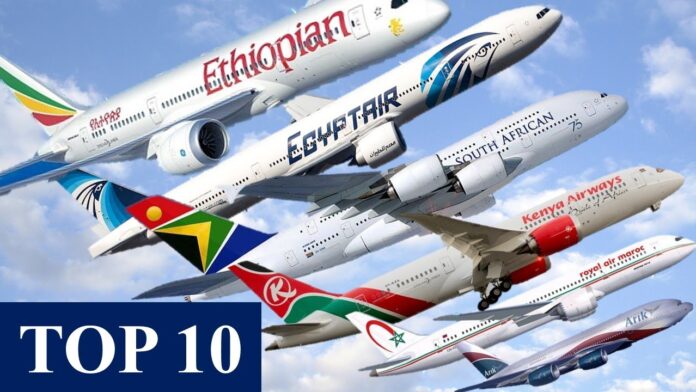African airlines face cash-flow issues amid slow passenger recovery
By Jeph Ajobaju, Chief Copy Editor
African airlines have been warned to brace for possible $4.7 billion loss in 2022 because of multiple factors, including slow passenger recovery, despite the lifting of lockdown restrictions across several countries on the continent and elsewhere.
The likely loss is equivalent to 27.3 per cent of pre-pandemic 2019 revenues, as estimated in a report by the African Airlines Association (AFRAA) which assesses the performance of airlines continentwide.
African airlines lost $8.6 billion to the pandemic in 2021, which represented 49.8 per cent of their revenue in pre-pandemic 2019.
AFRAA expects revenue to rise with the relaxation of lockdown restrictions in many countries but adds that many operators are battling with cash-flow issues which may affect full recovery.
The conflict between Russia and Ukraine has stoked jet fuel price globally, generating concerns of its potential to slow down travel recovery, the report said.
Industry estimates project the impact of price increase on overall jet fuel bill will reach $86.3 billion based on estimated average price of $115 per barrel.
AFRAA estimated in March that the capacity of African airlines rose 67.3 per cent in 2021 versus 2019. It estimated traffic at 56 per cent in 2022.
The domestic market remains bullish with the biggest share for both capacity and actual passenger carried.
Domestic demand at 46.5 per cent outperformed intra-Africa and intercontinental at 31.3 per cent.
__________________________________________________________________
Related articles:
Nigeria’s first female Boeing 787 pilot valued by Qatar Airways
Airfares brace for further rise upon N700 pl aviation fuel
Rise in aviation fuel price doubles airfares
__________________________________________________________________
Intra-African connectivity
Five African airlines continued their international routes expansion and surpassed the number operated pre-pandemic.
Ten re-opened suspended routes or launched new international ones. As of February 2022, African airlines had reinstated about 79.9 per cent of their pre-pandemic international routes, according to AFRAA, per reporting by The Nation.
Intra-African connectivity reached 72 per cent of pre-COVID levels in February and is estimated to notch up 75 per cent in March because of easing of lockdown restrictions in several African countries.
In Algeria, connectivity increased due to the reopening of many destinations particularly to West Africa.
Ethiopian Airlines, Royal Air Maroc, and EgyptAir are among airlines that opened new routes to African destinations.
But across Africa in general, passenger traffic volumes remain depressed.
Full year revenue loss for 2022 is estimated at $4.7 billion, equivalent to 27.3 per cent of 2019 revenue.
Kenya
Vaccinated travellers coming to Kenya are exempt from the requirement of a PCR test from March.
All eligible unvaccinated travellers arriving at any port of entry must possess a valid COVID-19 negative PCR test certificate conducted within 72 hours before departure regardless of the route of entry, and do a rapid antigen test at their own cost of $30.
Any person who tests positive on antigen RDT will be subjected to PCR test at their own cost of $50 and self-isolate. Travellers below the age of five years are exempt from these testing requirements.
Nigeria
Inbound fully vaccinated passengers arriving in Nigeria are no longer be required to take a pre-departure PCR COVID-19 test.
They will not be charged for arrival rapid antigen tests at the airport. Rules that apply to fully vaccinated adults also apply to children aged 10-18 years.
South Africa
Travellers entering South Africa need to show proof of vaccination or a negative PCR test not older than 72 hours.
All unvaccinated travellers arriving in South Africa who want to be vaccinated will be offered a vaccination.
Other African countries that have lifted travel restrictions include Senegal, Tanzania and Togo.
Europe
The European Council has adopted an updated recommendation on the temporary restriction of non-essential travel into the European Union (EU).
Member states allow non-essential travel for persons vaccinated with an EU- or WHO-approved vaccine, recovered persons, and all persons travelling from a country on the EU list.
Position of AFRAA
The position of AFRAA remains that states should not impose mandatory vaccination as a pre-entry and exit requirement for travel, until satisfactory access to vaccines and reasonable vaccination coverage is attained.
AFRAA urged governments to remove PCR test requirements for fully vaccinated passengers.














